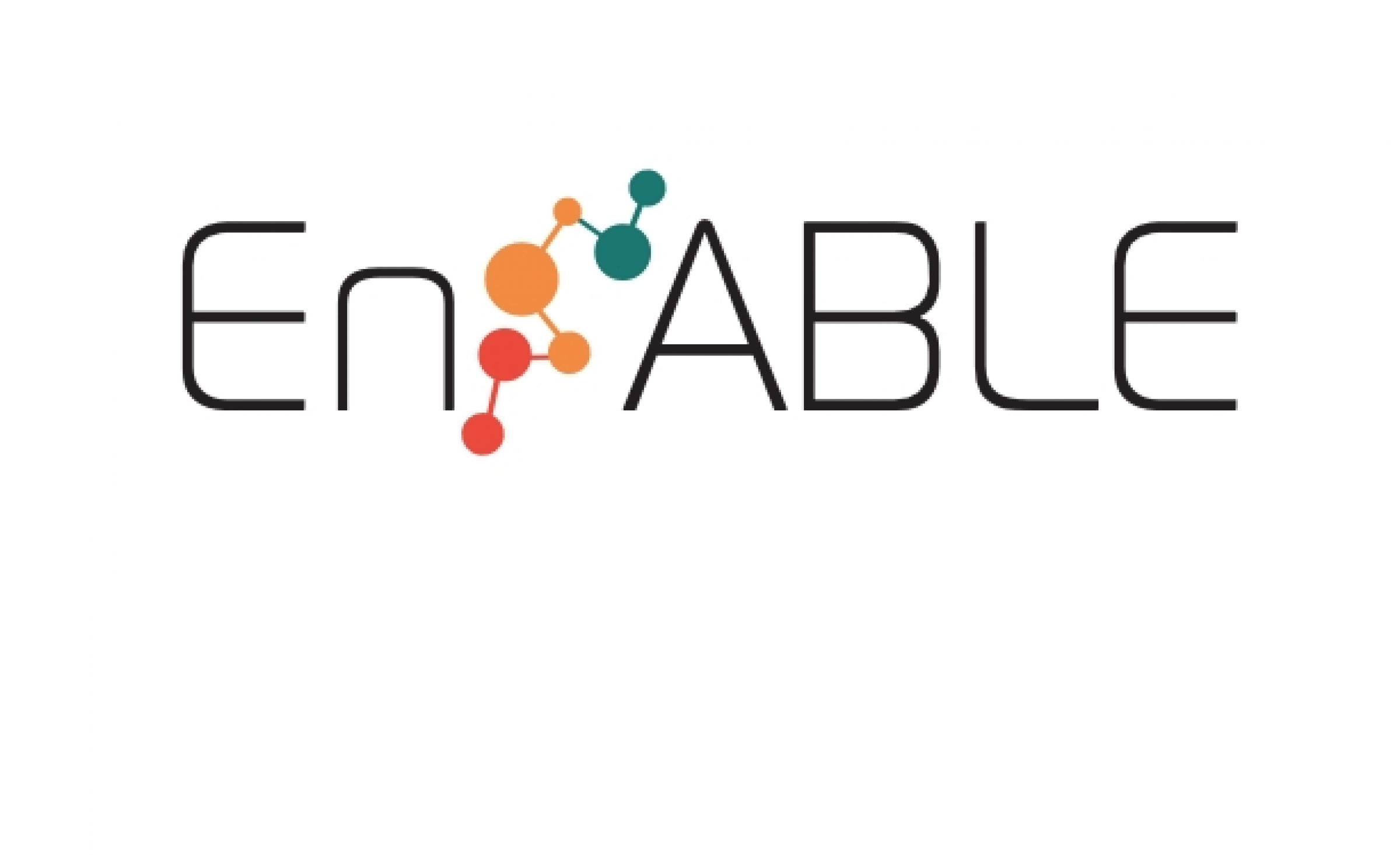February 3, 2021
Cluster funding for ENABLE
State of Hesse supports biomedicine project
As announced today, the cluster project ENABLE will be funded by the State of Hesse for the next four years. The project, led by Goethe University, aims to identify key sites relevant for diseases and to enable innovative therapeutic strategies.
The major societal challenges in the field of biomedicine require a faster transfer of fundamental findings into clinical research and application. Within the ENABLE cluster project, scientists will analyze how deregulated cellular signaling pathways influence the development and progression of diseases. They want to understand how bacterial and viral pathogens interact with their host cells, which immune responses are triggered and how tissue damage and disease subsequently occur. Based on this knowledge, they want to develop therapeutic strategies against emerging viruses such as SARS-CoV-2 or against antibiotic-resistant bacteria. The focus of interest is also on inflammatory reactions, which determine the course and success of therapy not only in infections, but also in many complex diseases, including those of the immune system or cancer. To achieve its goals, the ENABLE consortium relies on close interdisciplinary collaboration and state-of-the-art technologies, as well as new chemical and biological tools that allow cellular functions to be analyzed with unprecedented precision. ENABLE is funded with 8 million Euros from state funds and 9.1 million Euros from the Goethe University and the co-applicants.
"ENABLE is a greatly interdisciplinary consortium which aims at elucidating the principles of and connections between cellular homeostasis, inflammation and infection. I am thrilled to contribute to this goal developing and applying mathematical methods." FIAS Fellow Dr. Maria Barbarossa is pleased about the announcement of the grant.
A total of 6 projects will be funded from April 2021 in the "Cluster Projects" funding line set up by the state of Hesse. The aim is to promote particularly high-profile research areas and thus prepare Hessian universities and research institutions for the next round of the Excellence Strategy of the federal and state governments.
The success of this initiative is based on the participation of scientists from five departments at Goethe University and partners such as FIAS, the Max Planck Institute for Biophysics, the Fraunhofer Institute for Translational Medicine and Pharmacology, and the Georg Speyer Haus (GSH). For the future, it is planned that ENABLE will apply for a Cluster of Excellence in the next round of the German government's Excellence Strategy.
Further Information:
Clusterprojekt ENABLE - Unraveling mechanisms driving cellular homeostasis, inflammation and infection to enable new approaches in translational medicine
Speaker:
Prof. Dr. Ivan Đikić
Institut für Biochemie II, Universitätsklinikum der Goethe-Universität Frankfurt
und Buchmann-Institut für molekulare Lebenswissenschaften
Tel: +49 (0) 69 6301-5964,
dikic_at_biochem2.uni-frankfurt.de
Prof. Dr. Maike Windbergs
Goethe-Universität Frankfurt
Institute für Pharmazeutische Technologie
und Buchmann-Institut für molekulare Lebenswissenschaften
Tel: +49 (0) 69 798-42715
windbergs_at_em.uni-frankfurt.de
Applicant:
Goethe-Universität Frankfurt
Co-Applicants:
Frankfurt Institute for Advanced Studies (FIAS), Frankfurt a. M.
Fraunhofer Institute for Molecular Biology and Applied Ecology, Branch Translational
Medicine and Pharmacology (Fraunhofer IME-TMP), Frankfurt a. M.
Georg-Speyer-Haus (GSH), Institute for Tumor Biology and Experimental Therapy,
Frankfurt a. M.
Max Planck Institute of Biophysics (MPI-BP), Frankfurt a. M.
Participating Institutions:
Beteiligte Einrichtungen:Max Delbrück Center for Molecular Medicine, Berlin
Max Planck Institute for Heart and Lung Research, Bad Nauheim
Max Planck Institute of Molecular Cell Biology and Genetics, Dresden
